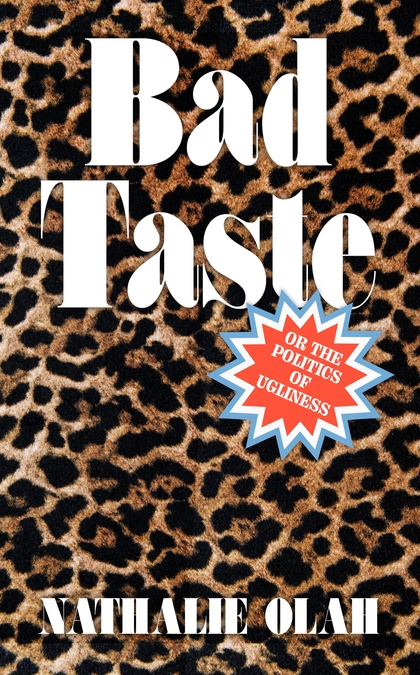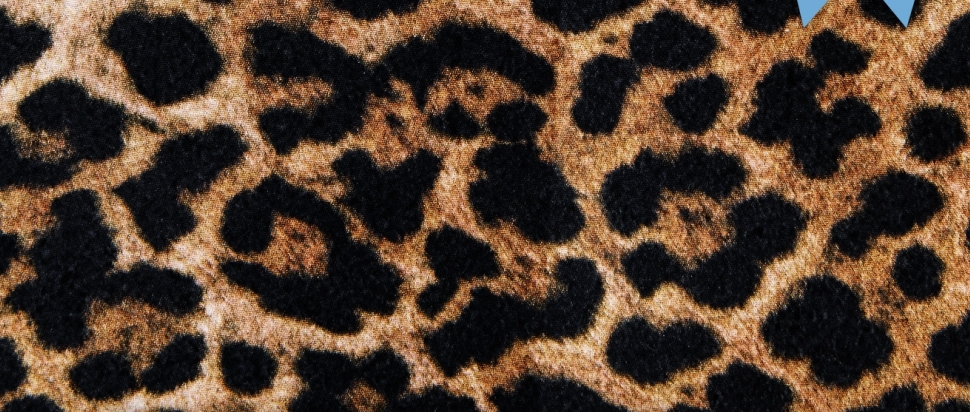Nathalie Olah on Bad Taste
We catch up with author Nathalie Olah to discuss her new book Bad Taste, dissecting the hierarchies of taste and class in 21st-century Britain
Nathalie Olah’s 2019 book Steal as Much as You Can alights on a weird contradiction of post-Thatcher Britain. While education, expression and information are notionally available to more people than ever, our media and institutions are increasingly under the control of privately educated, wealthy, upper-middle to upper-upper-class people. As Olah tells us over Zoom: “It was essentially about the ways in which working-class people had been at first co-opted by a quite cannibalistic media culture in the 1990s and then essentially discarded in the age of austerity.
“As I was writing it, the question of what constitutes sort-of middlebrow taste just kept cropping up, so I decided to write a little chapter on it, but it wasn't really something that I'd ever given that much time or thought to. When I spoke to lots of people afterwards, they said to me that it was the chapter that resonated with them the most, and so there was a sense of frustration after the first book came out that I hadn't really had an opportunity to delve into that subject and to devote the time that I wanted and needed to really understand it.”
Bad Taste is the result of a truly deep dive into the subject. The book diagnoses the ways taste is constructed, consensus is formed, things are marked as ‘worthy’ or ‘frivolous’ or ‘serious’. Olah takes Gramsci’s ideas of cultural hegemony and Freud’s notion of the narcissism of small differences and turns them on the food we eat, the films we watch, our hobbies, and the Christmas presents we buy.
“There was sort of a realisation that there is actually a political dimension to the fact that if you enter any place of work, if you want to apply for credit, or a flat, or a mortgage, there will be a consideration of how you present to the outside world,” Olah says, “and those sources of validation in today's society only sanction a really limited scope of behaviour. You can't just go in there dressed however you like, talking however you like. That is the cultural hegemonic force in action, saying that we will allow for one type of citizen, and that citizen has essentially been made in the image of an affluent, established elite.”
If that sounds serious, it is, but Bad Taste is also a funny, punchy, kaleidoscopic page-turner that pulls at the tangled threads of class, commerce and culture until they start to unspool, then keeps yanking. Olah tells us of a desire to create a more complicated and nuanced discussion, with chapters anchored around unexpected references. The section on food is centred around key scenes from the 2013 film Blue Is the Warmest Colour, while the discussion of fashion leads on Jonathan Glazer’s Glasgow-shot adaptation of Under the Skin, where Scarlett Johansson was able to interact with the public incognito via the simple expedient of a fur coat.
“That is a comment on the phenomenon of Scarlett Johansson,” Olah tells us. “It's not a person, really. It's a product, and it's a product that is entirely image-based. It's a visual creation. And as soon as you disrupt it slightly, that product is destroyed. What does that tell us about how powerful the clothing that we wear really is, in the way that we're forming impressions about one another?”

Bad Taste sits alongside Steal as Much as You Can as a document of the austerity years in Britain and beyond – a time of grim penny-pinching and flagrant waste at one end, shrinking horizons and faux-homestead insularity at the other. Olah cites the classics of the genre (your Keep Calm and Carry Ons, your Kilner jars filled with pine cones), but, she tells us, “what I'm really interested in is that it wasn't an authentic return to more artisanal methods and an appreciation for natural resources and objects in and of themselves. It was entirely virtual and synthetic. It was a synthetic nostalgia.”
Over time, Olah writes, that synthetic nostalgia for an imaginary past has morphed into an aspirational yet austere minimalism favoured by the tastemaking class. Nowhere is this clearer than in Olah’s thoughts on the ascetic Larry David cosplay that is normcore. Olah tells us: "When a friend said to me, ‘normcore has been around forever now and it's like the longest-standing trend ever’, I was like, ‘that doesn't really make sense’, as it would therefore seem to have spelled the end of fashion, because it's almost post-fashion."
If that were the case, Olah says, it would suggest that “we've never moved past this moment in time when everyone just essentially lighted on one particular look as the definitive look, and then just got themselves into a huge tizzy over whether or not they had the [correct] cut or thread count.”
She continues: “It’s depressing because that would suggest the complete homogenization through commoditization of fashion. It's only about status, hierarchy, competition, one-upmanship, and absolutely nothing to do with the outward expression of a kind of cultural sensibility or community or ideology, or just how you happen to feel that day.”
The solution to these issues is not to “embrace a kind of synthetic gaudiness” as a counterpoint. Instead, Olah says, it’s to be mindful of the pressures we face to conform and compromise, and to push back on them where we can. And yes, that does also apply to the author of this article.
“The homogenisation of culture has always been attributed to the internet,” Olah says. “Everything was freely available and people had choice paralysis, so they all just kind of conformed because they all wanted to get the maximum traction on everything that they shared and posted online. But I would say that the other thing that I think contributed to it was the loss of local and smaller journalism, because I think that that had a symbiotic relationship with culture.
“Movements would start in music and art and fashion, and it was actually the interest of journalists who found subculture fascinating that kind of validated them and gave them credibility, that only then reinforced them and made them popular with a slightly larger group of people.”
Across the globe, we can see the power and the deadly consequences of mainstream consensus around which stories ‘can’ be told and the ways we ‘should’ tell them. Bad Taste is a timely reminder that tastes and mores are real and powerful – but that if we can see them in action, we can, maybe, turn them from sour to sweet.
Bad Taste is out with Dialogue Books on 9 Nov
Nathalie Olah discusses the book at The Stories We Bring, part of Edinburgh’s Radical Book Fair, Assembly Roxy, 9 Nov, 7.30pm
